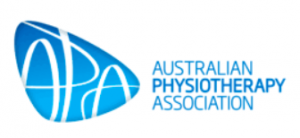Whiplash Treatment & Management
A whiplash neck sprain occurs when your head is suddenly jolted backwards and forwards in a whip-like movement usually caused in motor car accidents known as a “rear-ender”. These movements generate considerable force, typically causing the neck to move far beyond the normal range of movement and causes damage to the delicate supporting structures of the neck.
Whiplash is effectively a sprain of the joints in the neck – Physiotherapists refer to this as a vertebral dysfunction. Whiplash can also result from forceful sporting injuries that cause similar stress to the neck joints, ligaments, muscles and discs.
Make an Appointment.




Who gets whiplash?
Whiplash neck sprains are common. About 2 in 3 people involved in car accidents develop neck pain (with or without other injuries). Many people are surprised with the onset of neck pain following even minor accidents some hours following the accident.
It is important to note that even minor car bumps can cause enough whipping of the neck to cause symptoms. Less commonly, whiplash can result from everyday mishaps such as jolting your neck when you trip of fall.
As a part of your treatment, your physiotherapist will massage and gently mobilize your spine to help improve your neck function and reduce nerve pressure.
Some other helpful advice is to avoid poor neck posture during your daily routine and to use a firm supporting contoured pillow when sleeping.
Whiplash responds very well to Physiotherapy treatment, with most people experiencing significant improvement within weeks of beginning care.
Symptoms
Whilst the symptoms of whiplash will vary, the following represent the most frequently noticed effects of whiplash: Pain in the neck; Head feels too heavy for the neck; Reduced neck movement; Neck stiffness; Pain into the shoulders and arms; Tingling in the arms and fingers; Dizziness, headache, blurred vision and pain on swallowing; Irritability and difficulty to concentrate.
Treatment
Physiotherapy management of whiplash is extremely effective. All Physiotherapy care initially consists of a through history, orthopaedic, neurological and spinal examination to determine the exact location of your neck pain. Diagnostic imaging such as Xray, CT,MRI and posture pro scans may also be required to fully assess any damage. Treatment consists of reducing pain and inflammation and stabilizing your neck to prevent further damage. Ice is perhaps the best natural anti-inflammatory modality and it is also very soothing when your neck is painful.
Book a consultation
We tailor our Noble Park and Dandenong whiplash treatments to each individual we work with. If you are able to support your head and neck, it is especially important to keep your neck mobile rather than immobilizing it in a soft cervical collar. Studies have shown that you are more likely to make a quicker recovery if you do regular neck exercises, and keep your neck active rather than resting it for long periods in a collar.
Frequently Asked Questions.
A Physiotherapy session involves our Physiotherapist taking you through a thorough professional physical assessment followed by a diagnosis of your specific problem. Physiotherapists help you understand what causes the problems and related injuries as part of our educational approach to integrating the treatment with your lifestyle. This is then followed by a variety of treatment techniques and exercises to assist your return to mobility and full function.
The average physiotherapy session varies from 20 – 30 minutes, with most patients receiving a structured series of exercise and stretches to do at home to complement their treatment in our physiotherapy clinic. All our treatments are one-on-one in private treatment rooms – we never see more than one patient at a time. You do not need a Doctor’s referral to see our Physiotherapists and health funds will pay a rebate for part of the cost of your physio consultation.
Our Physiotherapists use the latest hands-on techniques such as joint mobilisation, manipulation, stretching, taping, soft tissue techniques and dry needling to assist in pain management and injury recovery. We also focus on personalised exercise programs involving biomechanical analysis, specific muscle activation, strengthening and conditioning exercises, balance and proprioceptive neuromuscular facilitation, postural correction, and core stability training to assist in the restoration of the physical function, injury rehabilitation and performance of the body.
Physiotherapists are experts in the prevention of all kinds of injury, particularly sports injuries. We work with health club practitioners and provide advice or complement training techniques in preventing injury. Our physiotherapists will discuss any important lifestyle factors such as training programs, sporting goals, workstation setups and postural correction to help prevent problems from recurring or better still, from happening in the first place. In many cases there is more than one cause of your pain, especially if it is a chronic or recurring problem.
Whether you have injured yourself while working out in the health club, doing normal activities at home, at work or on the sporting field, our Physiotherapists will help you recover in a speedy, complicated-free treatment to get you back to your normal activities. Physiotherapists focus on the assessment, maintenance and restoration of the physical function and performance of the body and minimise your chance of re-injury. Getting you back to your fitness regime quickly is what Physiotherapists aim for.
At your initial visit your physiotherapist will perform a thorough physical assessment enabling them to diagnose your condition. Once your condition has been diagnosed your physiotherapist will then explain it to you and specific treatment will be recommended and commenced to help solve your problem. This process is likely to take around 40 minutes.
A Doctor’s referral is welcome but not necessary if you are attending one of our clinics as a private patient. You do however require a referral from your Doctor if your problem is related to a motor vehicle accident, or if you are a Veterans’ Affairs patient.
You do not need a Doctor’s referral if your problem is related to a workplace injury. However, your first medical certificate will need to come from your Doctor.
If you are in a Private health Insurance Fund and are covered for Ancillary Cover or “extras’’ then you will be eligible to receive a rebate. Currently there is only limited funding for treatment of chronic conditions via Medicare.
At our clinics we use an electronic payments and claiming system called HICAP’s. This system allows you to automatically claim your rebate from your Health Fund immediately following your treatment. All you need is to present your Health Fund Card to one of our receptionists who instantly process your claim. Once this is completed all you are required to do is pay the ‘gap amount’ (the difference between the treatment fee and the rebate you received from the Health Fund). This can be paid with cash, cheque, credit card or EFTPOS.
There are some provisions for limited physiotherapy costs to be covered under Medicare. To qualify for this you must be suffering from a condition that has been present, or is likely to be present for at least 6 months and your GP must be currently using a personally managed EPC (Enhanced Primary Care) multidisciplinary plan. If you meet these two criteria then this may enable you to receive up to 5 Medicare funded treatments per year. To find out all necessary details ask your GP or contact us for more information.

